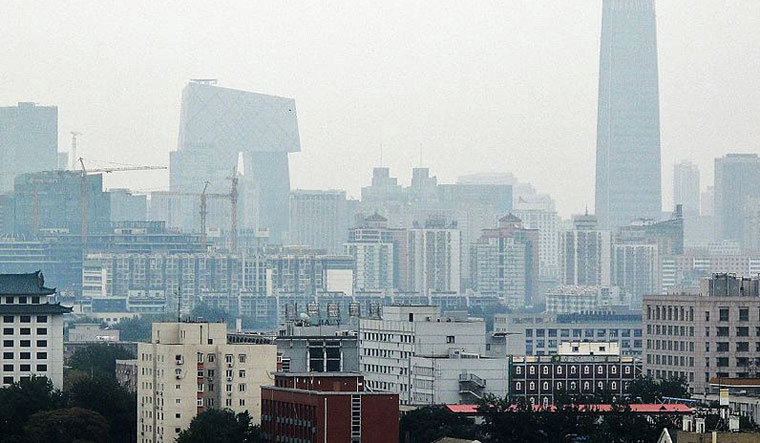Rising US tariffs being imposed by President Trump is sure hurting Chinese economy as it revealed fresh signs of softness on September 14. Data showed pace of investment slowing to record lows while retail spending and industrial production stabilised.
Beijing faces a delicate balancing act, aiming to shift its growth driver away from investment and exports towards personal consumption, while at the same time battling a mountain of debt. Production of key goods including motor vehicles and transport equipment fell. Output of cars barely grew and crude steel production increased by just a third of the pace in the previous month.
The Dragon's trade spat with its major export destination the US has complicated the task and sent domestic stock markets tumbling to lows, which have not been seen since the 2016 collapse. "We are under no pressure to make a deal with China, they are under pressure to make a deal with us," Trump tweeted. He has further threatened to slap higher taxes on every Chinese product coming into the US. He also threw cold water on hopes of high-level negotiations.
As per data released by China's National Bureau of Statistics, the trade spat has had a limited effect on economic data so far. But it "certainly had an impact" from the perspective of the people from the two countries said NBS spokesman Mao Shengyong.
Fixed-asset investment growth in January-August, slowed down to 5.3 percent, which is slower than the 5.5 per cent in January-July, which was the lowest level on record.
China's cabinet has indicated it will step up support for the economy and quicken infrastructure project approval in coming months but experts do not expect the measures to kick in until next year.
Output at factories and workshops ticked up 6.1 per cent in August, from 6.0 per cent in July, according to the NBS, and in line with the forecast in a Bloomberg News survey.
Retail sales, a window into Beijing's aim to get consumers spending to drive the economy, expanded 9.0 per cent for the month, from 8.8 per cent in July and beating estimates of 8.8 per cent.
But analysts warned part of the jump could be attributed to higher inflation.
"We think growth will continue to slow in the coming months given that policy stimulus has so far failed to drive a turnaround in infrastructure spending or broader credit growth," said Evans-Pritchard.
— With inputs from PTI


